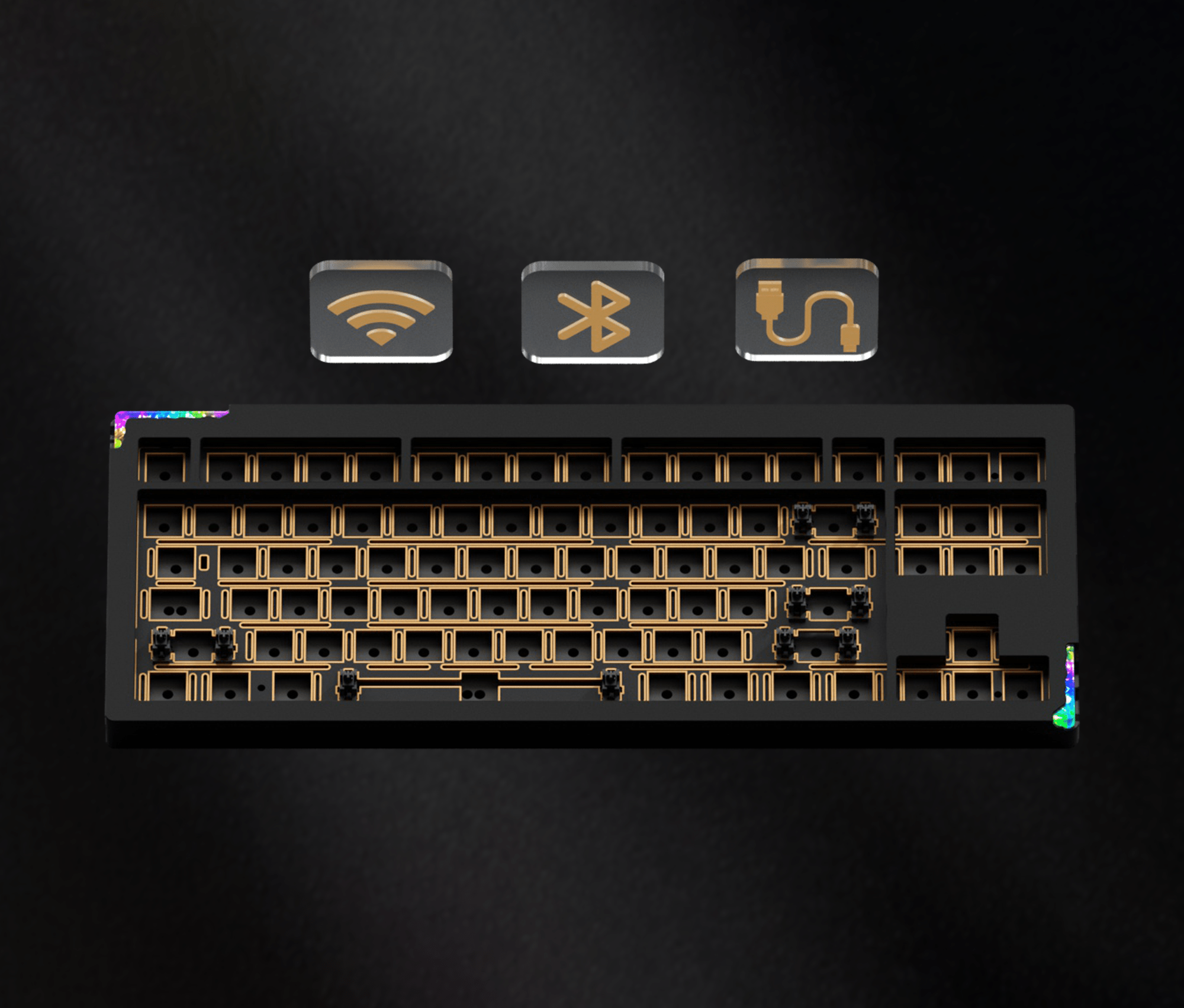The debate between wireless and wired mechanical keyboards has gained traction as more enthusiasts and professionals gravitate towards the tactile allure of mechanical switches. While both options have their merits, deciding between the two can depend on your specific needs, preferences, and use case. Let’s break down the pros and cons of each to help you decide if going cable-free is worth it.
Wired Mechanical Keyboards: The Traditional Workhorse
Wired mechanical keyboards have been the staple for gamers, typists, and productivity enthusiasts for years. Here’s why they remain a popular choice:
Pros:
- Stable Connection: With a wired connection, you’ll never experience input lag or interference. Gamers especially value the near-instant response time of wired keyboards.
- Power Independence: No need to worry about battery life—plug in and type away endlessly.
- Affordability: Wired options generally cost less than their wireless counterparts because they lack additional connectivity hardware.
- Ease of Use: Plug-and-play functionality ensures compatibility without the need for pairing or software.
Cons:
- Cable Management: The ever-present cable can clutter your desk and limit mobility.
- Port Dependency: Wired keyboards tie you to a USB port, which might be inconvenient for devices with limited connectivity.
Wireless Mechanical Keyboards: The Modern Minimalist
Wireless keyboards offer the freedom to type without physical constraints, appealing to those seeking a clean and modern setup.
Pros:
- Portability: Without a cable, these keyboards are easier to carry and ideal for setups where mobility is essential.
- Aesthetic Appeal: A cable-free setup looks sleek and minimalist, perfect for modern workspaces.
- Flexibility: Use your keyboard across multiple devices, including tablets and smartphones, via Bluetooth.
- Modern Features: Many wireless keyboards include dual-mode options, allowing you to switch between wired and wireless modes for versatility.
Cons:
- Battery Management: Depending on usage, you’ll need to recharge or replace batteries periodically.
- Higher Cost: Wireless models tend to be pricier due to the additional hardware and features.
- Latency and Interference: While modern wireless keyboards have made great strides in reducing lag, they may still experience slight delays or connectivity issues in some environments.
Which One Is Right for You?
Deciding between wired and wireless depends on how you plan to use your keyboard:
-
Gamers and Power Users: If you’re into competitive gaming or need the most reliable connection for work, a wired keyboard is a safer bet. Look for models with high-quality braided cables and detachable USB-C options for improved durability and convenience.
-
Professionals and Minimalists: A wireless keyboard makes more sense if your priority is desk cleanliness and the ability to switch between devices seamlessly. Models with advanced wireless technology (like 2.4 GHz connectivity) can provide a near-wired experience.
-
Hybrid Users: Many keyboards now offer hybrid modes, allowing you to toggle between wired and wireless. These are an excellent middle ground if you want flexibility without compromise.
Is Going Cable-Free Worth It?
For many, the decision boils down to preference and budget. A wireless mechanical keyboard offers unparalleled convenience and aesthetic appeal, but it comes at a cost—both literal and in terms of potential minor inconveniences like battery management. On the other hand, wired keyboards are a tried-and-true option for those who value performance and reliability above all else.
In the end, there’s no wrong choice—only what suits your lifestyle and needs. Whether you opt for the dependable performance of a wired keyboard or the liberating flexibility of a wireless one, the joy of typing on a mechanical keyboard remains unmatched.






